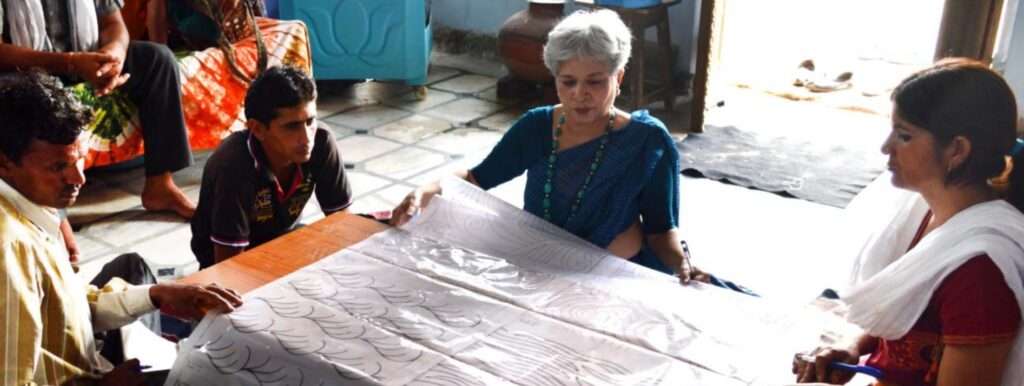
disha
DISHA was started in 2009 by 2 rural development professionals with over 20 years experience in the sector. Their focus was on impoverished and exploited women of the Shekhawati region of Rajasthan, many of whom had been left behind by economic migrant men folk, becoming their family’s sole earner. They had been left to fend for themselves, dealing with land disputes and divorce, sexual exploitation and domestic violence. DISHA worked to make these women aware of their legal rights.
In 2010, realising that the women of this area were skilled in the traditional craft of Bandhani or Bandhej (tie-dye) and seeing the potential in this activity for income-generating economic self-reliance that leads to greater freedom in strategic life choices, DISHA approached Dastkar for support service assistance.
Dastkar conducted a field survey to assess DISHA’s needs. In the villages of Sujangarh, Ladano and Tehsil alone there were approximately 2000 families engaged in Bandhej work. It was found that a Bandhej worker earned only Rs.20 for 3 to 4hrs of work per day, or just Rs.3 for work on 1 duppata. But this was only a part-time occupation, their main employment being that of sweepers in government offices, earning a monthly wage of around Rs.300.
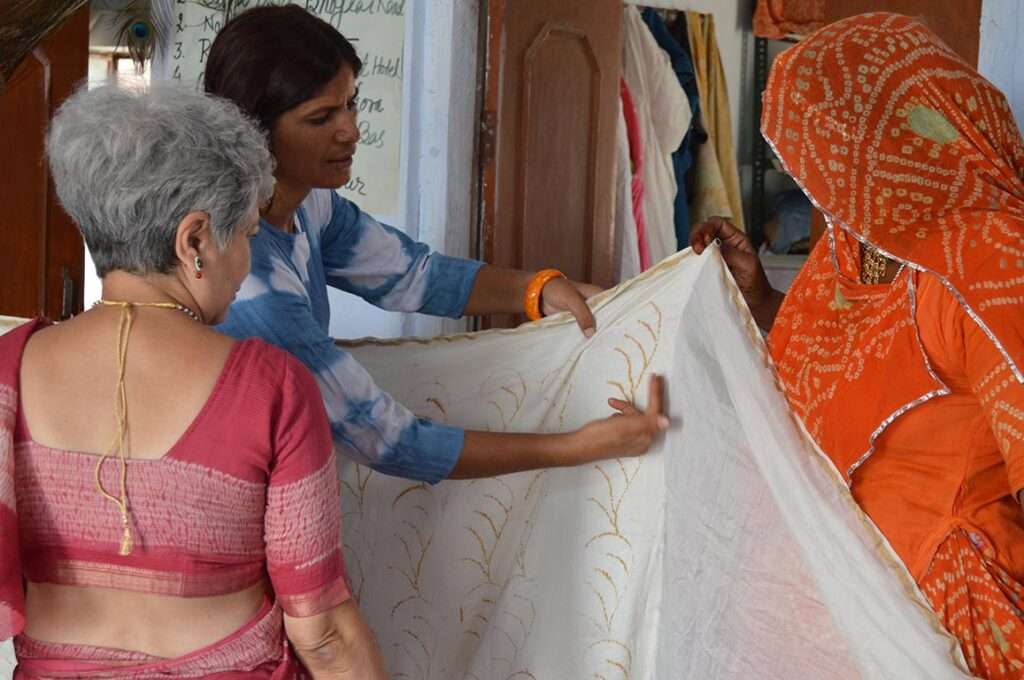
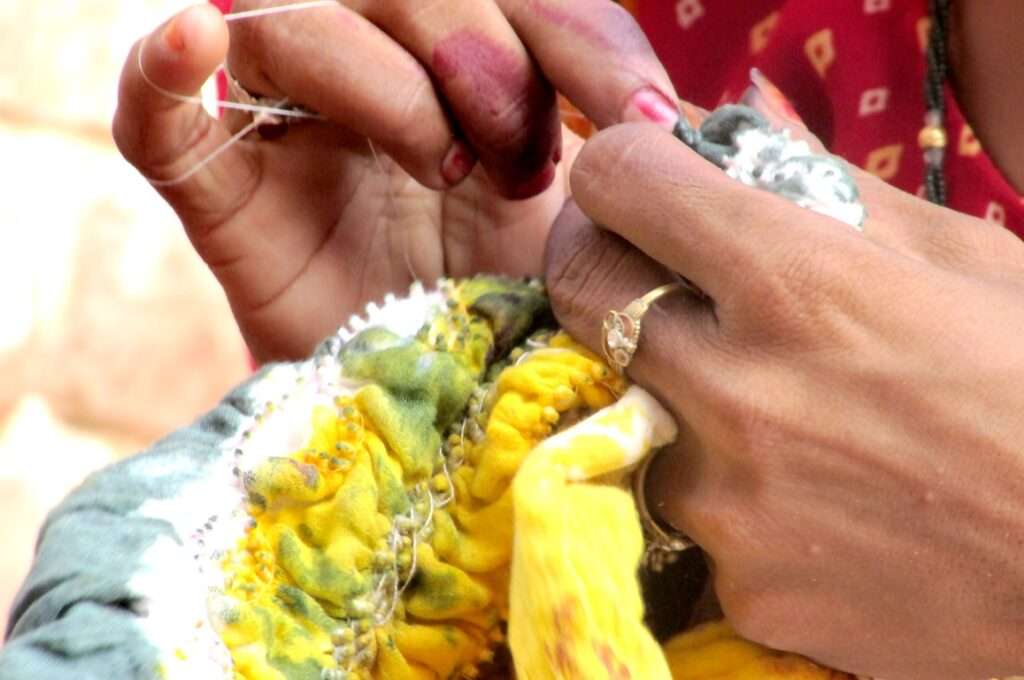
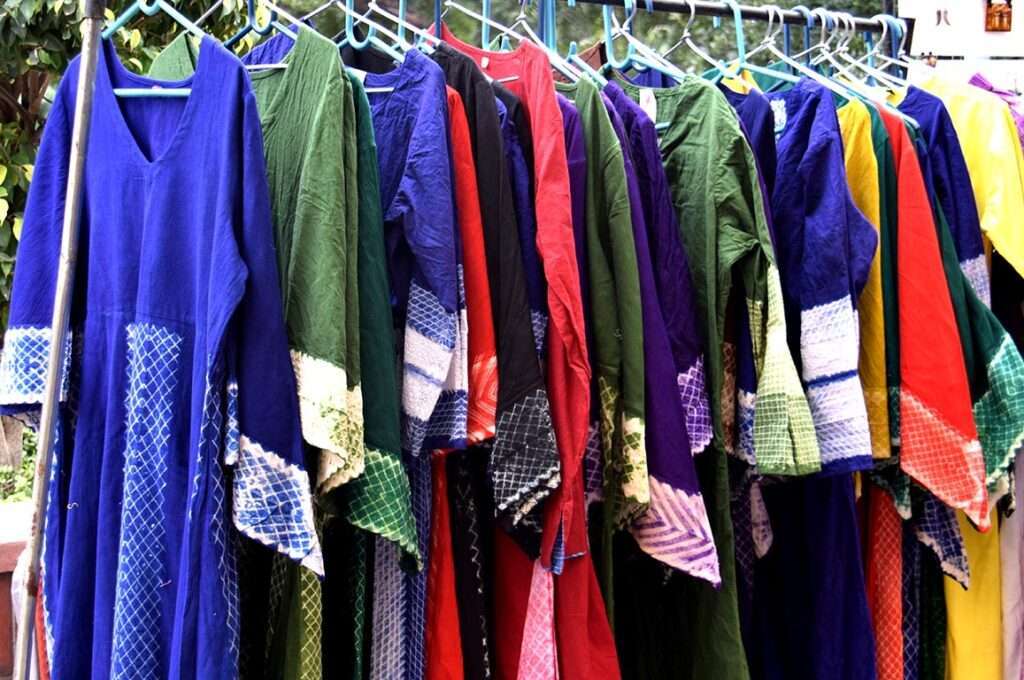
Dastkar observed the different skill levels of the women and visited the local markets to gauge the quality of raw materials being used and the kinds of designs available. On this basis Dastkar decided to implement a programme of design development workshops so new product ranges could be developed according to customer demand and market trend.
Dastkar aimed to strengthen DISHA’s organisation, help to revive the craft of Bandhani to a level of quality almost snuffed out in the region and, through sales at Dastkar’s Bazaars, increase incomes thereby directly affecting improvement in health, education and lifestyles.
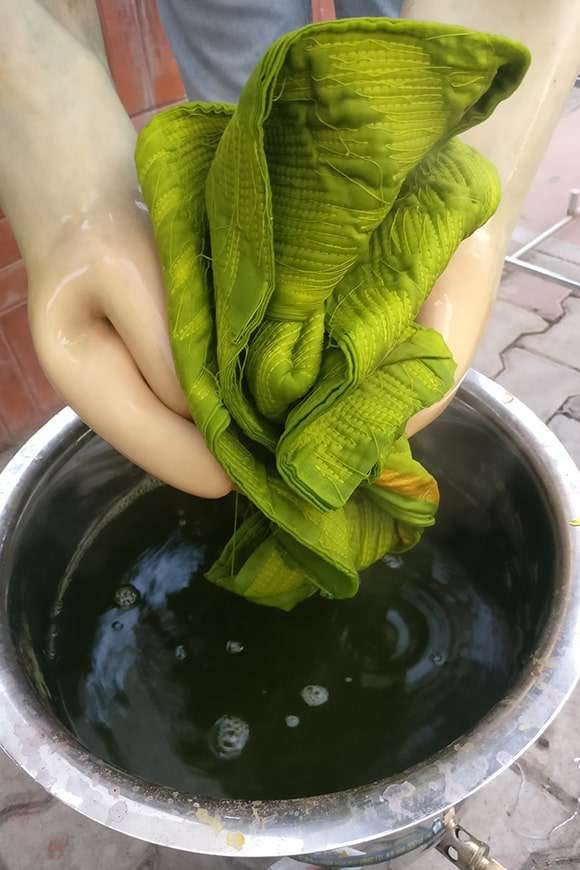
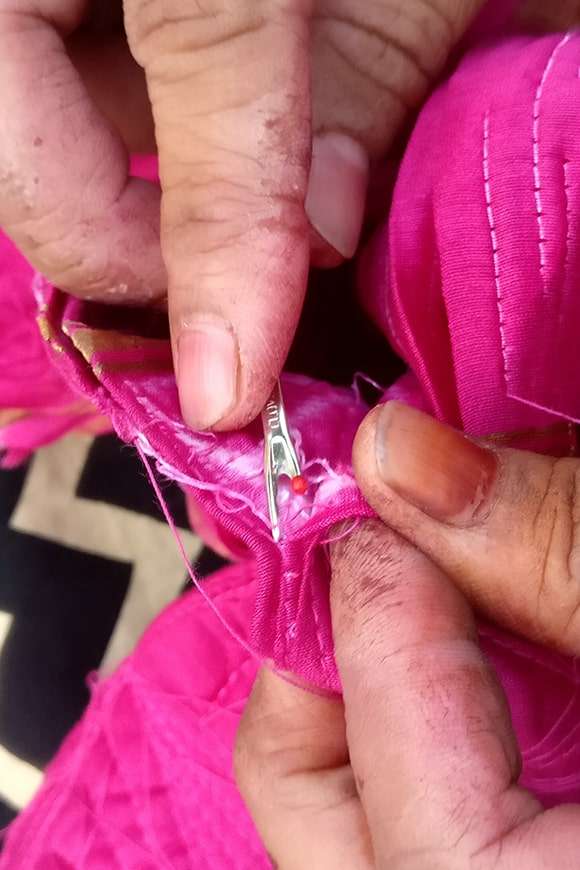
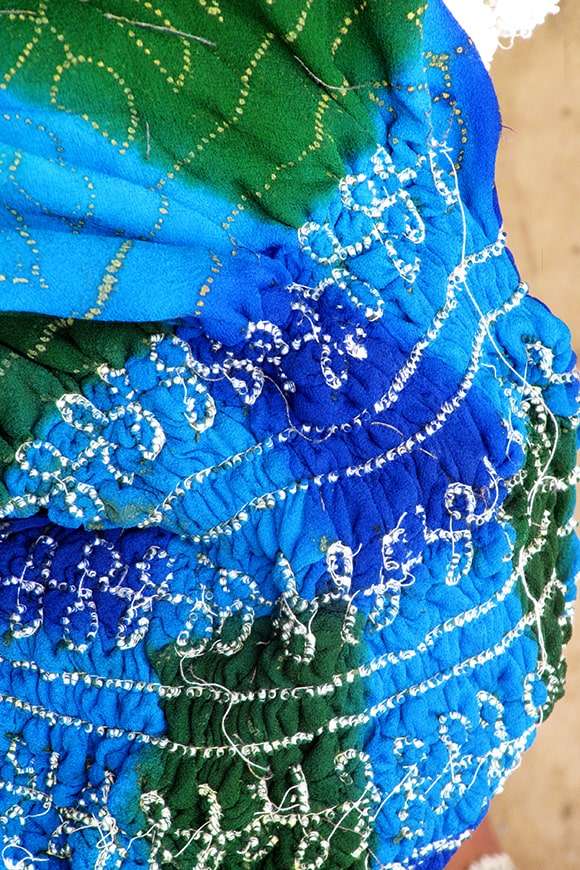

To start with there were 15 craftswomen associated with DISHA. By 2012 this figure had gone up to 135, including craftsmen involved with the dyeing process. It was anticipated that the number of people benefitting from DISHA’s actions would grow to around 200 people within a few years. Incredibly, in the space of about 18 months, those benefitting were already 400! When DISHA started, skilled craftswomen were earning Rs.100-150 a day and un-skilled workers were earning Rs.40-50 a day. An approximate increase of 20% was anticipated in the income of these craftswomen. Once again outstripping expectations, in 2012 DISHA Bandhani workers were earning Rs.2,200 to Rs.2,500 per month.
DISHA intends to continue to increase its outreach to encompass more women of other neighbouring villages, so that the long-term benefits of craft-enabled empowerment may be felt by the community at large.

